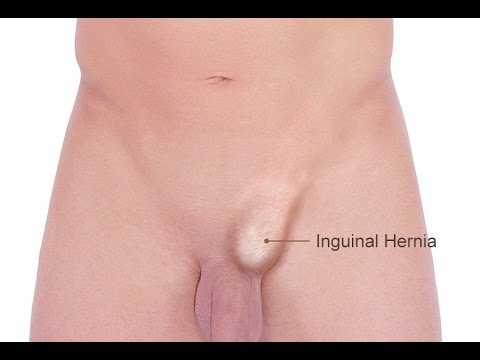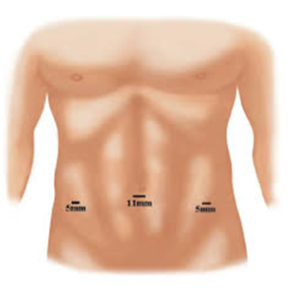Inguinal Hernia Repair
What is Inguinal Hernia?
An inguinal hernia occurs when the soft tissue inside the abdominal cavity (omentum) or part of the intestine — protrudes through a weak point in the groin. The resulting bulge can be painful, especially when you cough, bend over or lift a heavy object and may disappear spontaneously on lying down.
An inguinal hernia once formed, doesn’t get better or go away on its own and can lead to life-threatening complications.
- What are the symptoms of inguinal hernia?
Inguinal hernia signs and symptoms include:
- A bulge in the area on either side of your pubic bone
- A burning, gurgling or aching sensation at the bulge
- Pain or discomfort in your groin, especially when bending over, coughing or lifting
- A heavy or dragging sensation in your groin
- Weakness or pressure in your groin
- Occasionally, pain and swelling around the testicles when the protruding intestine descends into the scrotum
What are the causes of Inguinal Hernia?
- Congenital (Since birth)
- Increased pressure within the abdomen
- A pre-existing weak spot in the abdominal wall
- Straining during bowel movements or urination
- Heavy weight lifting
- Fluid in the abdomen (ascites)
- Pregnancy
- Excess weight
- Chronic coughing or sneezing
What are the Inguinal Hernia Complications?
- Pressure on surrounding tissues causing pain and swelling. Most inguinal hernias enlarge over time if they’re not repaired surgically. Large hernias can put pressure on surrounding tissues. In men, large hernias may extend into the scrotum, causing pain and swelling.
- Incarcerated hernia. If the omentum or a loop of the intestine becomes trapped in the weak point in the abdominal wall, it can obstruct the bowel, leading to severe pain, nausea, vomiting, and the inability to have a bowel movement or pass gas.
- Strangulation. An incarcerated hernia may cut off blood flow to part of your intestine. This condition is called strangulation, and it can lead to the death of the affected bowel tissue. A strangulated hernia is life-threatening and requires immediate surgery.
What is the treatment of Inguinal Hernia & period of recovery?
Inguinal Hernia Surgery is the only treatment available & there are two types of Inguinal Hernia surgical procedures
- Open Meshplasty (Lichtenstein repair)
- Laparoscopic Meshplasty (TAPP or TEP)
Recovery time is 3-4 days after laparoscopic surgery and about 2 weeks after open surgery
How Laparoscopic Surgery is performed (TAPP)?
It is performed under general anesthesia making small key holes in the abdomen through which the telescope and thin & long instruments are introduced and surgery is performed by seeing inside of the abdomen on a TV monitor and a mesh is placed inside.
What is the cost of surgery?
Please fill the inquiry form
What are the precautions after hernia surgery?
Avoiding lifting heavy weight for 6 months, Any existing risk factor listed in causes should be avoided at any cost.
How to Prevent inguinal hernia?
You can’t prevent the congenital defect that makes you susceptible to an inguinal hernia. You can do things to reduce strain on your abdominal muscles and tissues, however.
- Maintain a healthy weight. Talk to your doctor about the best exercise and diet plan for you.
- Emphasize high-fiber foods. Fruits, vegetables and whole grains contain fiber that can help prevent constipation and straining.
- Lift heavy objects carefully or avoid heavy lifting altogether. If you must lift something heavy, always bend from your knees — not your waist.
- Stop smoking. Besides its role in many serious diseases, smoking often causes a chronic cough that can lead to or aggravate an inguinal hernia.
- Avoid relying on a truss. Wearing a supportive garment designed to keep hernias in place (hernia truss) doesn’t correct the underlying problem or help prevent complications. Your doctor might recommend a hernia truss for a short time before surgery to help you feel more comfortable, but the truss isn’t a replacement for surgery.









